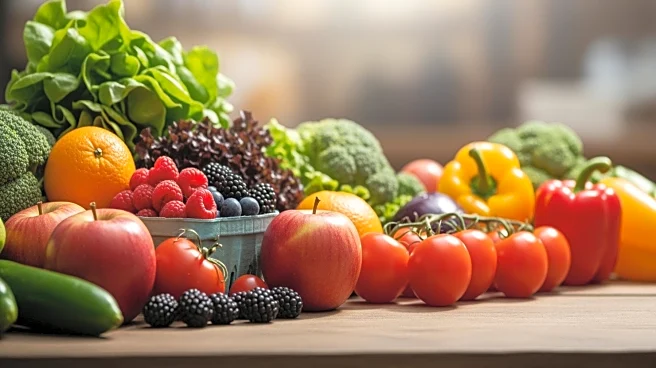What's Happening?
U.S. Trade Representative Jamieson Greer announced that President Trump is prepared to implement tariff exemptions on certain food products not produced domestically. This decision follows recent trade
agreements with four Latin American countries, which have paved the way for reducing tariffs on items such as coffee, cocoa, and bananas. Greer emphasized that these products do not require tariffs as they are not manufactured in the U.S., and the timing is appropriate given the new trade deals.
Why It's Important?
The move to exempt tariffs on specific food products could have significant implications for U.S. trade relations and domestic markets. By reducing tariffs, the U.S. may strengthen its trade ties with Latin American countries, potentially leading to more favorable trade conditions and increased importation of these goods. This could benefit U.S. consumers through lower prices and greater availability of these products. However, it may also impact domestic producers who compete with imported goods, necessitating adjustments in the agricultural sector.
What's Next?
The implementation of these tariff exemptions is expected to proceed following the finalization of trade agreements. Stakeholders, including agricultural producers and importers, will likely monitor the effects on market dynamics and pricing. The U.S. government may continue to negotiate further trade deals, potentially expanding the list of exempted products. Additionally, there may be discussions on how these changes align with broader trade policies and economic strategies.











